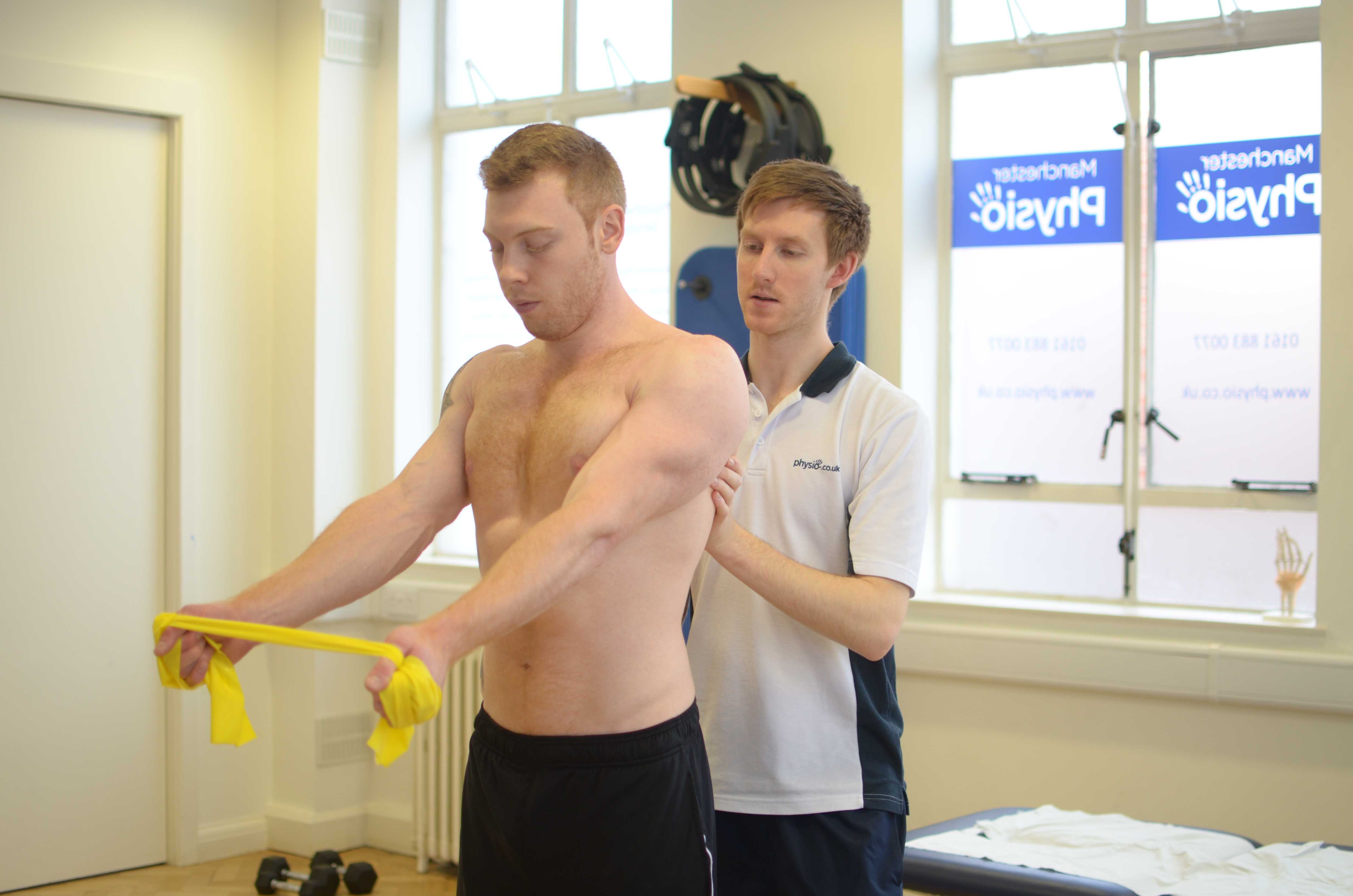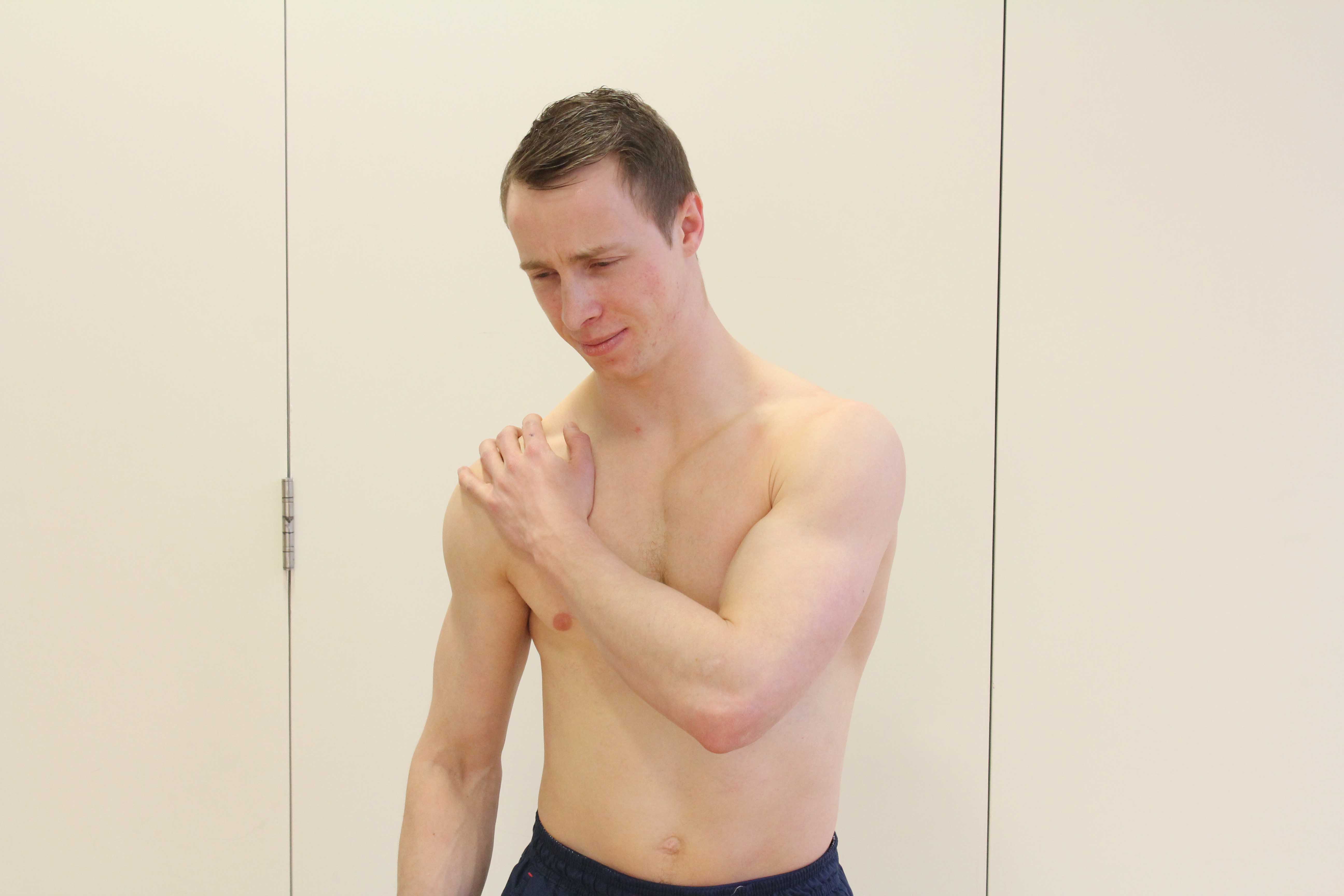What is it calcific tendinopathy?
The rotator cuff is a group of four small muscles in the shoulder. They are important as they support and move the shoulder joint. The rotator cuff muscles all attach to the arm bone by tendons. Calcific tendinopathy is the laying down of calcium deposits within one or more of these tendons. Physiotherapy is an excellent way to treat calcific tendinopathy.
 Above: Physiotherapist supervising isometric exercises to alleviate pain
Above: Physiotherapist supervising isometric exercises to alleviate painWhat causes calcific tendinopathy?
The exact cause of calcific tendinopathy is unknown. It is thought that it is caused by overuse or injury to a rotator cuff tendon. The most commonly involved tendon is that of the supraspinatus muscle. Repetitive use of this muscle can cause wear and tear of the supraspinatus tendon. This can lead to the laying down of calcium deposits within the tendon and also cause inflammation or swelling.
What are the symptoms of calcific tendinopathy?
Calcific tendinopathy results in pain felt in the upper arm and shoulder. This pain is often described as an intense aching sensation. It is often present when the arm is at rest and is worsened by movement of the arm. Other symptoms include:
What should I do if I have calcific tendinopathy?
Calcific tendinopathy usually does not get better without treatment. If you have or suspect you have calcific tendinopathy you should contact Physio.co.uk and arrange a physiotherapy assessment.
 Above: Calcific tendinopathy is when there is a build up on calcium which increases pressure on the supraspsinatus tendon. It can be extremely painful if untreated.
Above: Calcific tendinopathy is when there is a build up on calcium which increases pressure on the supraspsinatus tendon. It can be extremely painful if untreated.Calcific tendinopathy of the rotator cuff physiotherapy treatment
Physiotherapy is important in the treatment of calcific tendinopathy. Initially, your physiotherapist will diagnose the problem and determine its severity. This may require the referral for imaging techniques such as an X-ray or MRI. From this, your physiotherapist will be able to determine an appropriate treatment plan. This can involve activity modification, the taking of anti-inflammatory medications and, in some cases, an injection of a small amount of anti-inflammatory into the affected tendon. Other physiotherapy treatments include:
- Ultrasound
- Manipulation / Mobilisation
- Acupuncture
- Soft Tissue Treatment
- Taping
What shouldn’t I do if I have calcific tendinopathy?
If you suspect you have calcific tendinopathy you should not ignore the problem. This may lead to your injury getting worse. If this occurs your recovery may be prolonged.
Does calcific tendinopathy have any long-term effects?
Calcific tendinopathy does not usually cause any long-term effects if it is properly diagnosed and treated. Without treatment it can lead to prolonged pain in the upper arm and a prolonged lay-off from participation. In some situations, this may occur despite appropriate treatment. In these cases, surgery may be required to remove the calcium deposits and alleviate your pain.
To arrange a physiotherapy appointment call Physio.co.uk on 0330 088 7800 or book online.

 0330 088 7800
0330 088 7800

































